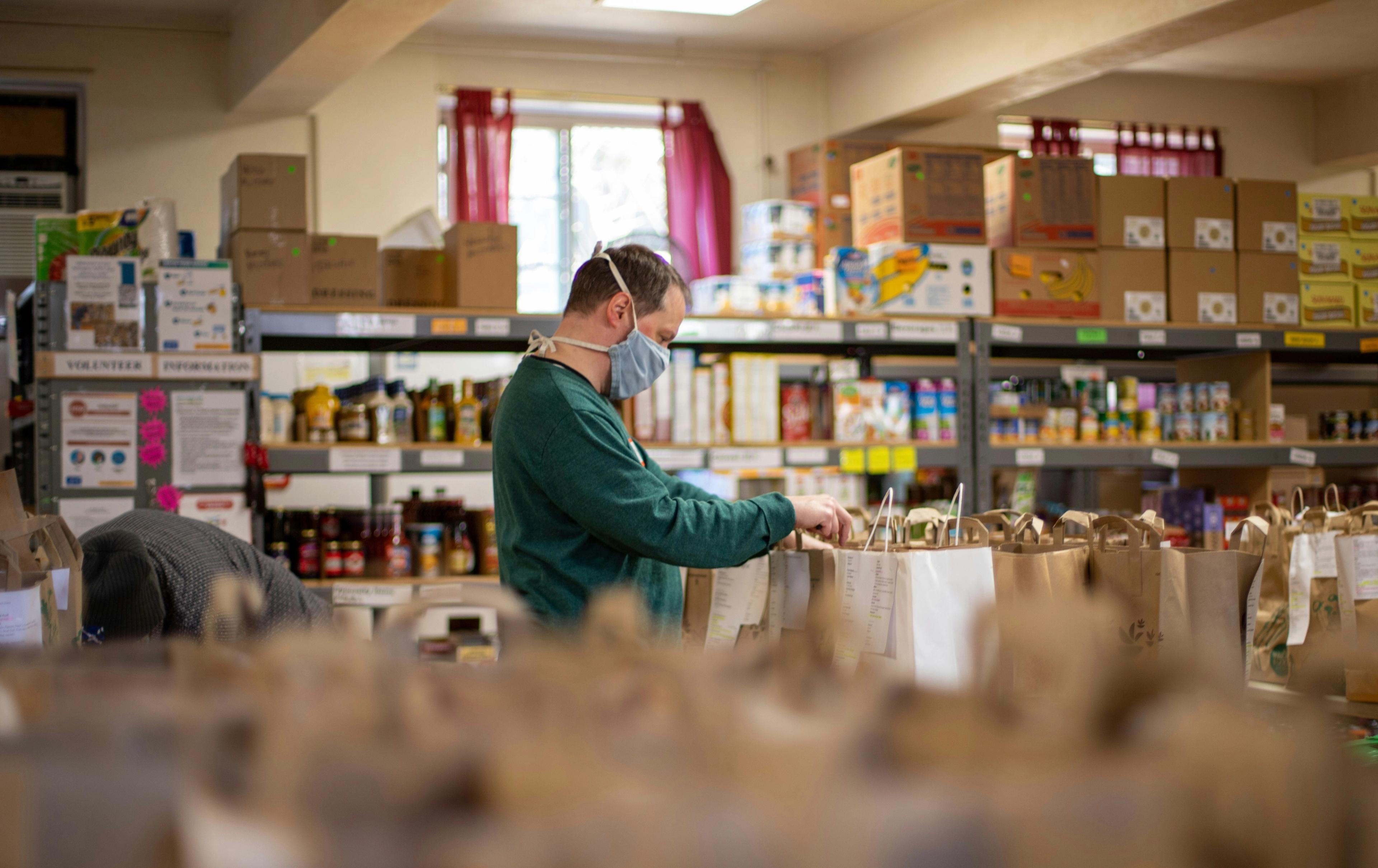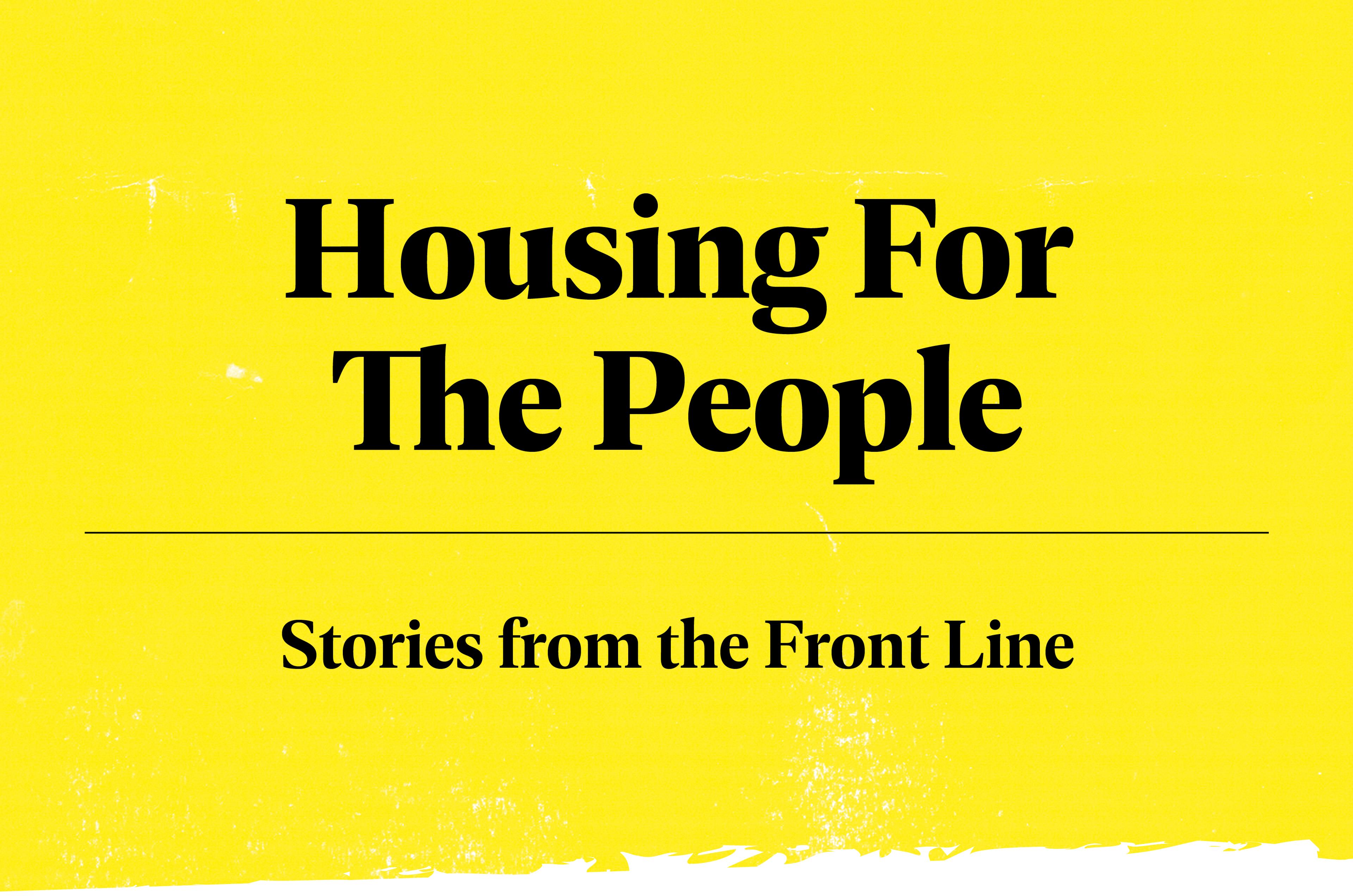Making a living: the pros and cons of work and lived experience

Photo by Aaron Doucett
By Robyn Woof
- Lived experience
The following article is part of INSP’s Changing the Narrative series. It has been written as the result of the new journalism training academy, established in 2025 by INSP to provide people with direct experience of homelessness and poverty the opportunity to learn about journalism and the media, and to enhance their storytelling and written abilities. The training academy has two ambitions: to challenge media and public misconceptions about homelessness; and to tackle the lack of representation and diversity in newsrooms. The training academy will run again in September 2025 in INSP’s hometown of Glasgow, Scotland.
I have “lived experience” of homelessness, currently living in temporary emergency housing after years of squats, caravans and sleeping rough. I’ve been registered as homeless for three years but refused emergency housing until recently.
I have been an addict since the age of 11, and clean since last summer. When I stopped using, I asked for temporary accommodation but was offered somewhere with many other addicts, so said no. It was only when a homelessness charity advocated for me that I was offered suitable accommodation. I also received help from an addiction charity, and one that supports homeless people to make a living.
Some of the friends I have been homeless with now work for charities supporting people experiencing homelessness, and got these jobs as a result of their past. I know that this has benefited them – it can be hard to find employment after a chaotic period, but the very experiences that made them unemployable elsewhere gave them access to a career.
I know from these friends that sometimes their colleagues don't understand basic aspects of “street culture”: a culture that is known well by those who have experienced it. Sometimes, staff have been shocked by my experiences or just don’t get it. For me, it can be a lot easier to talk to someone who has been there themselves.
When I started on the INSP’s Changing the Narrative course, I decided that I would write about how having lived experience helped employees to do their job. I asked the three organisations who had helped me if they could put me in touch with staff members both with and without experience of homelessness who would be willing to talk to me.
Many staff, both with and without lived experience, said that having direct experience would help staff to empathise with service users, but that objectivity was easier without it. Peter*, who has been homeless himself, told me that “having distance is important; you can get bogged down in individual decline versus systemic problems. However, [staff without lived experience] can be clinical, which is necessary, but how a situation is handled where a service user is in crisis varies.”
Homeless people can have many other coexisting problems and are individuals. No single approach will work for everyone, and interviewees emphasised the danger of preconceptions. Una* said that staff “may bring preconceptions to work with them, which can make it difficult for service users to be understood and supported.”
However, staff who have been homeless only have first-hand experience of their own homelessness – they can relate better to some things, but lived experience can cause preconceptions of its own. Homelessness charity worker Tommy* says, “I’ve seen in action when [staff with lived experience] have got out of it so assume others can.”
The people I spoke to agreed that regardless of their experience, staff got a lot out of helping people, but there were benefits specific to staff with lived experience. Peter explains, “There’s an aspect of my work that’s therapeutic. My work is a reminder of how much I’ve had to work to get where I am.”
However, being reminded of your past can also be unpleasant or even directly damage your mental health. Una is clear about the risks: “Work that revolves around one's own traumatic lived experiences can be extremely emotionally challenging and can lead to burnout.”
This is, however, a risk for all staff. As Erica* said, “All staff [either with] lived or non-lived experience can burn out.”
Of the three organisations that I spoke to, two have homelessness as a core focus, and the third focusses on addiction. Many users can lose their homes during active addiction, while others can fall into addiction when homeless. Paul*, who works for the addiction-focused charity and who has been homeless several times, told me that, “Sadly, homelessness is a very common factor in the lives of [many addicts] so understanding the nuances of homelessness is extremely important.”
All three organisations employ staff with a range of other life experience – in particular the addiction charity, which has a lot of staff who are recovering addicts. Erica told me, “Staff with no experience of homelessness may have experience of [a list of other traumatic events and disadvantages] … [The] best teams I have worked in have been [the] most diverse.”
“It’s good to have a mix of staff with and without lived experience,” Paul added. “[To avoid unconscious bias] we have a mixed team, who all use reflective practice.”
I believe that staff with lived experience offer a better service and that charities working with homeless people need to ensure that everyone is represented to balance staff teams. However, this kind of work can affect anyone’s mental health, and all workers, regardless of background, need to have their rights protected.
Tommy is clear that this helps both staff and the people that they support: “Employers have to look after staff as well as service users … [for us] to be able to give the best service, because people deserve that.”
*Names changed to protect identity.

